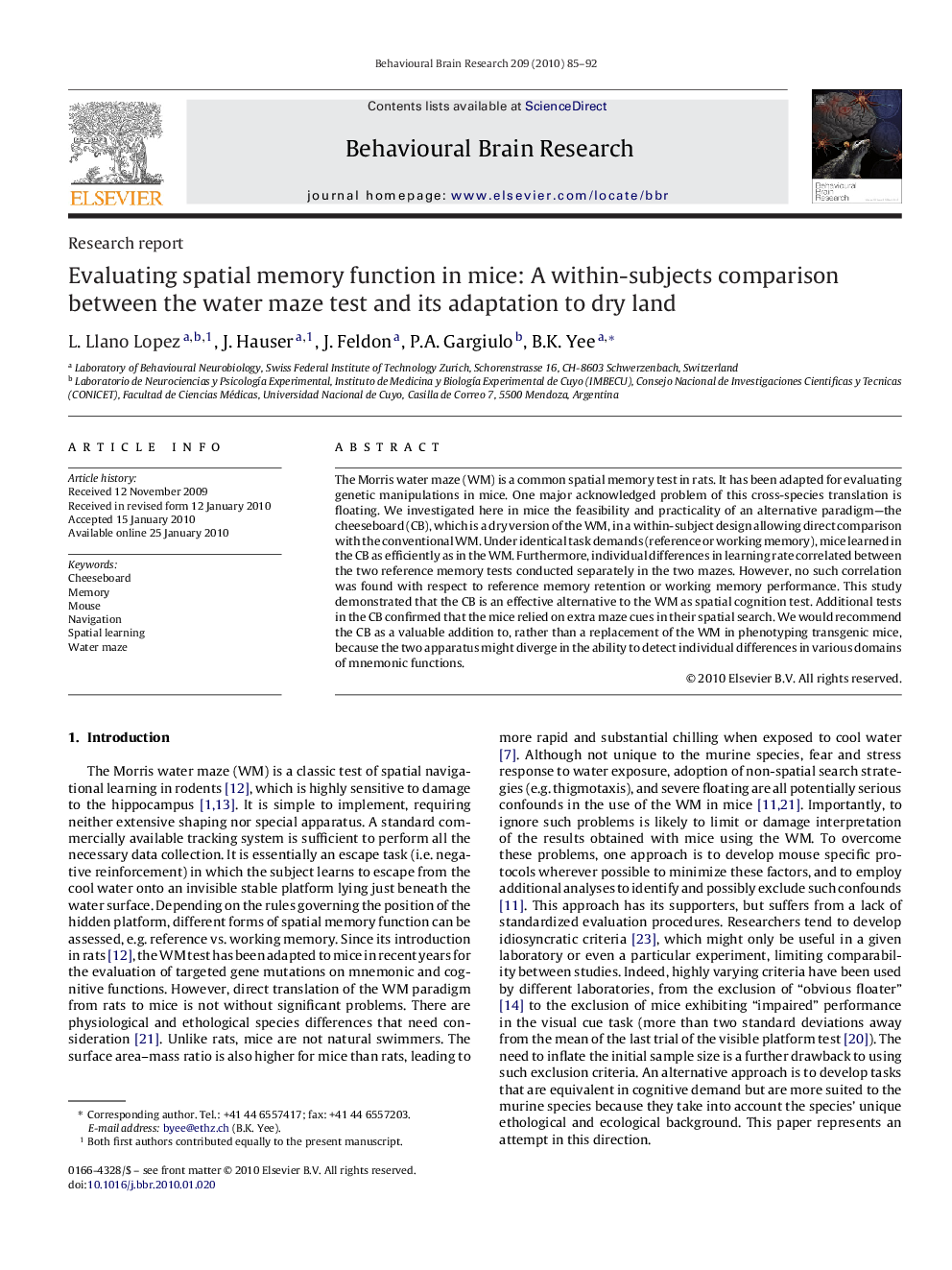| Article ID | Journal | Published Year | Pages | File Type |
|---|---|---|---|---|
| 4314249 | Behavioural Brain Research | 2010 | 8 Pages |
The Morris water maze (WM) is a common spatial memory test in rats. It has been adapted for evaluating genetic manipulations in mice. One major acknowledged problem of this cross-species translation is floating. We investigated here in mice the feasibility and practicality of an alternative paradigm—the cheeseboard (CB), which is a dry version of the WM, in a within-subject design allowing direct comparison with the conventional WM. Under identical task demands (reference or working memory), mice learned in the CB as efficiently as in the WM. Furthermore, individual differences in learning rate correlated between the two reference memory tests conducted separately in the two mazes. However, no such correlation was found with respect to reference memory retention or working memory performance. This study demonstrated that the CB is an effective alternative to the WM as spatial cognition test. Additional tests in the CB confirmed that the mice relied on extra maze cues in their spatial search. We would recommend the CB as a valuable addition to, rather than a replacement of the WM in phenotyping transgenic mice, because the two apparatus might diverge in the ability to detect individual differences in various domains of mnemonic functions.
